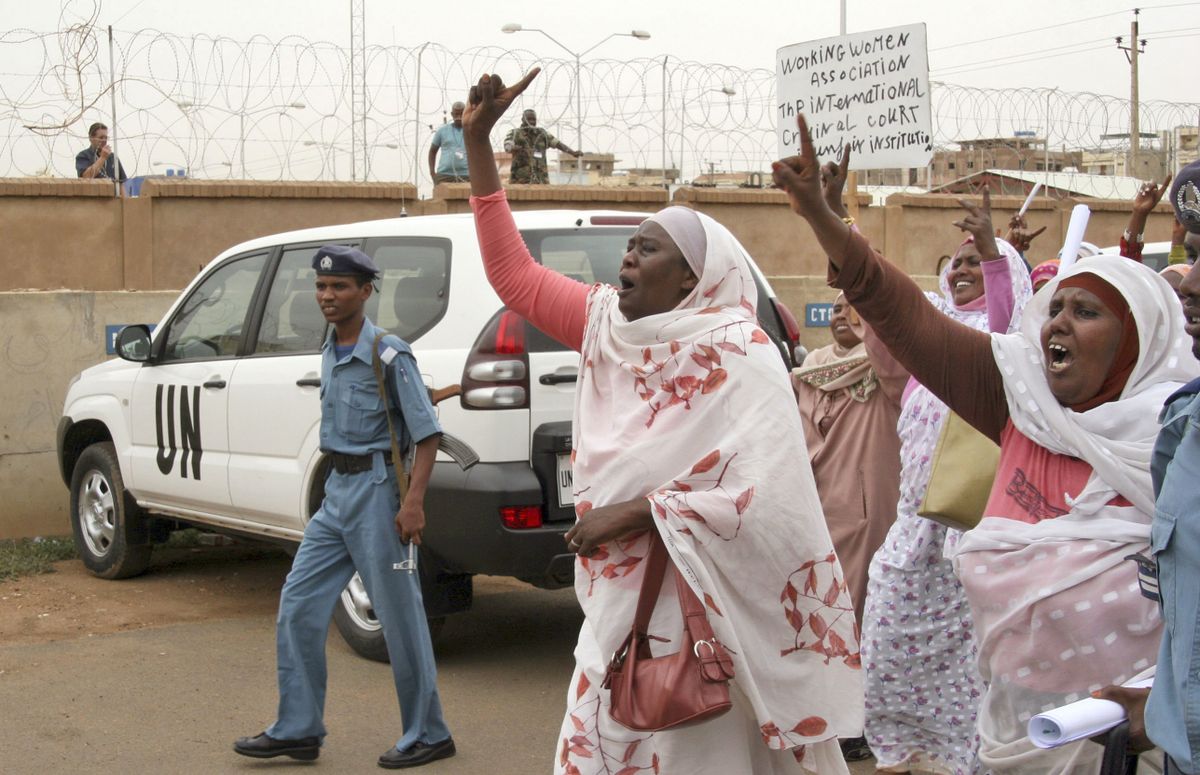Sudan leader faces genocide charges
Government rejects allegations

NAIROBI, Kenya – The chief prosecutor for the International Criminal Court charged Sudanese President Omar Hassan al-Bashir on Monday with genocide, war crimes and crimes against humanity for orchestrating a brutal, scorched-earth campaign against particular ethnic groups in Sudan’s western Darfur region.
It is the first time the court has charged a sitting head of state.
Chief prosecutor Luis Moreno-Ocampo of Argentina presented evidence to a three-judge panel that al-Bashir “masterminded and implemented a plan to destroy in substantial part” three ethnic groups in Darfur that the government viewed as the constituency of rebels who took up arms against the government in 2003.
“Al Bashir failed to defeat the rebels, so he went after the people,” according to a statement from Moreno-Ocampo. “His alibi was ‘counterinsurgency.’ His intent was genocide. … He has mobilised the entire state apparatus, including the armed forces, the intelligence services, the diplomatic and public information bureaucracies, and the justice system” to subject the targeted groups “to conditions of life calculated to bring about their physical destruction.”
The Sudanese government swiftly rejected Moreno-Ocampo’s allegations and vowed to fight them “legally.”
“The government will fight according to the diplomatic way, and also with advocates and will stand against these accusations by Ocampo,” said Rabie Atti, a spokesman for the ruling National Congress Party, noting that Sudan, like the United States, is not a signatory to the court.
“All the statements of Ocampo depend on false information.”
Though the government disputes the figures, some experts estimate that at least 400,000 people have died in the Darfur conflict, most of them during its first two years, when the government recruited an Arab militia that came to be known as the Janjaweed to carry out its war against civilians.
At least 2.5 million people – nearly half the entire population of the Darfur region – have been driven from their villages and into massive camps for displaced people, which has activated the largest humanitarian relief effort in the world. Moreno-Ocampo alleged that the second phase of al-Bashir’s plan has been to obstruct aid flowing into the camps, where people routinely complain of being harassed by government militiamen and soldiers.
The widely anticipated charges, announced at The Hague, have sparked a fierce debate among diplomats and human rights activists over whether they will help pressure the Sudanese government into reaching a peaceful settlement in Darfur, or derail the process altogether and perhaps lead to further violence.
Al-Bashir and officials within the National Congress Party have refused to cooperate with the court and during the weekend promised “dire” consequences for Darfur if the charges were filed. U.N. officials have expressed concern that the government could retaliate against 10,000 international peacekeepers in Darfur or obstruct humanitarian assistance to more than 2.5 million people displaced in Darfur.
The United Nations is temporarily pulling out all nonessential staff from Darfur as a precaution. During the weekend, the Sudanese government moved several fighter jets into the western region, and in the capital of Khartoum Sunday, organized a protest of a thousand party members against the court.